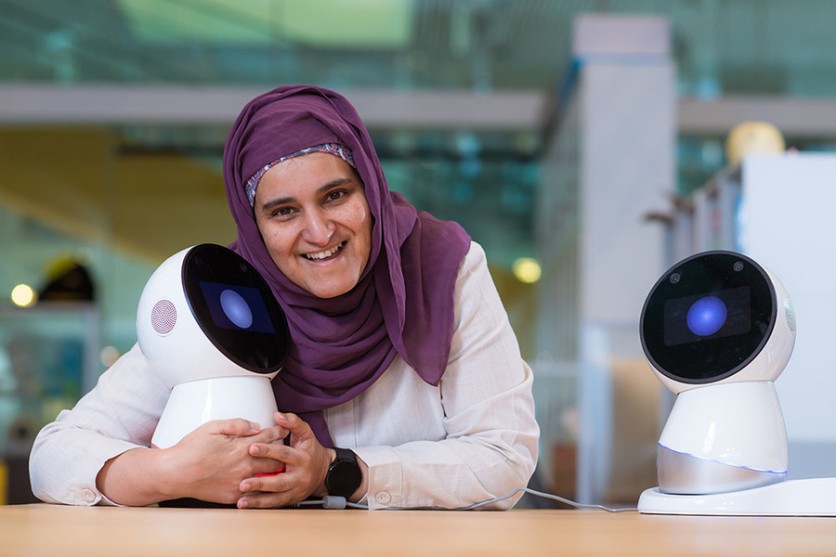Personal robots are purpose-built machines designed to assist with a multitude of everyday tasks. These adaptable devices come in various forms and are capable of performing diverse functions, including automating household chores or offering companionship and aid to individuals.

A Robot that Can Explain Emotions
One noteworthy personal robot is Jibo, created by MIT Professor and Dean for Digital Learning and the founder of MIT's Media Lab Personal Robots Group (PRG) Cynthia Breazeal.
Interesting Engineering reported that Jibo stands out for its unique ability to do something that not all humans can: explain emotions. It accomplishes this feat in multiple languages, including English and Arabic.
Breazeal's research delves into the potential evolution of companion robots beyond mere transactional assistants, capable of more than just completing tasks like checking the weather, managing to-do lists, or adjusting lighting.
The MIT Media Lab's PRG team developed Jibo with the aspiration of transforming it into a knowledgeable mentor and a friend, thereby advancing the field of social robotics technology.
Presently, Sharifa Alghowinem, a research scientist at PRG, is taking Jibo to the next level by training it for mental health care and educational roles. Through her efforts, Jibo is now equipped to employ principles of positive psychology to provide guidance and support to individuals in need of emotional assistance.
In one notable study, Jibo demonstrated its ability to adapt its interactions with patients based on their responses. The robot effectively utilized a combination of verbal and non-verbal cues, including extended pauses and self-hugging motions, to discern the true emotions and needs of the participants.
What's Her Purpose?
In her upcoming project, Sharifa Alghowinem aims to support Syrian refugee children by creating a team of social robots. As per MIT News, these robots will help children learn English, develop social skills, and maintain their cultural heritage and Arabic language.
While this project is still in the funding stage, Alghowinem is determined to bring it to life soon."We've laid the groundwork by making sure Jibo can speak Arabic as well as several other languages," Alghowinem stated.
Alghowinem's mission is to harness the power of personal robots to assist Syrian refugee children. She envisions a team of social robots that can teach these children English, impart crucial social-emotional skills, and preserve their cultural heritage and Arabic language.
While her project is currently in the funding phase, Alghowinem is determined to turn this vision into reality. However it's worth noting that personal robots, while offering convenience, also bring forth privacy and ethical considerations.
Issues like data security, obtaining user consent, and the potential for technology dependence are essential aspects that demand careful thought and attention.
With the continuous advancement of technology, the prospect of more affordable, capable, and seamlessly integrated personal robots into our daily routines becomes increasingly likely.
Consequently, it is imperative that these robots are crafted with meticulous attention to detail and a strong sense of responsibility.
Related Article S: outh Korea Tops Global Rankings in Industrial Robot Adoption





